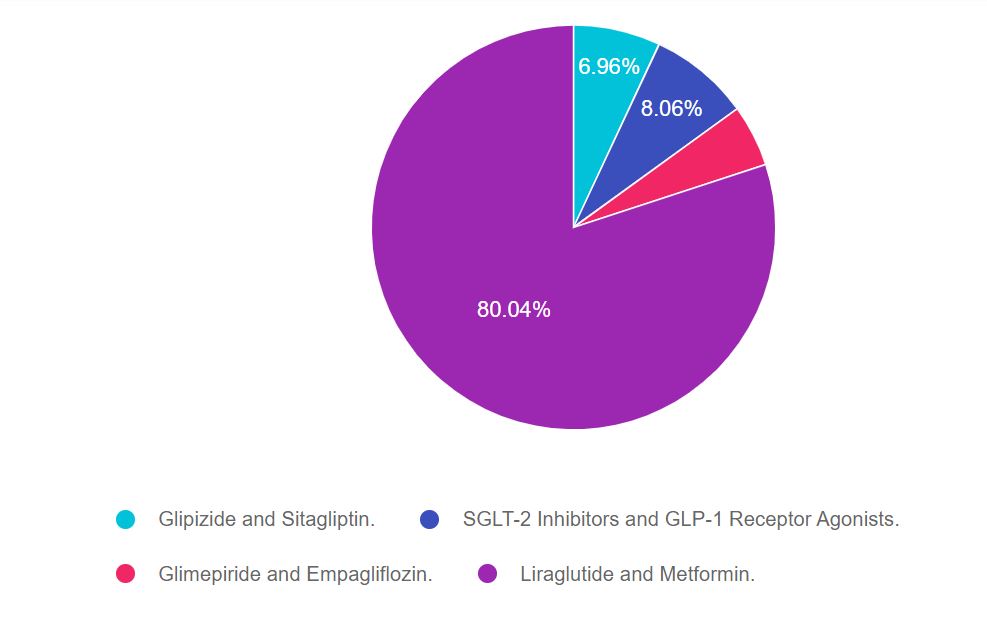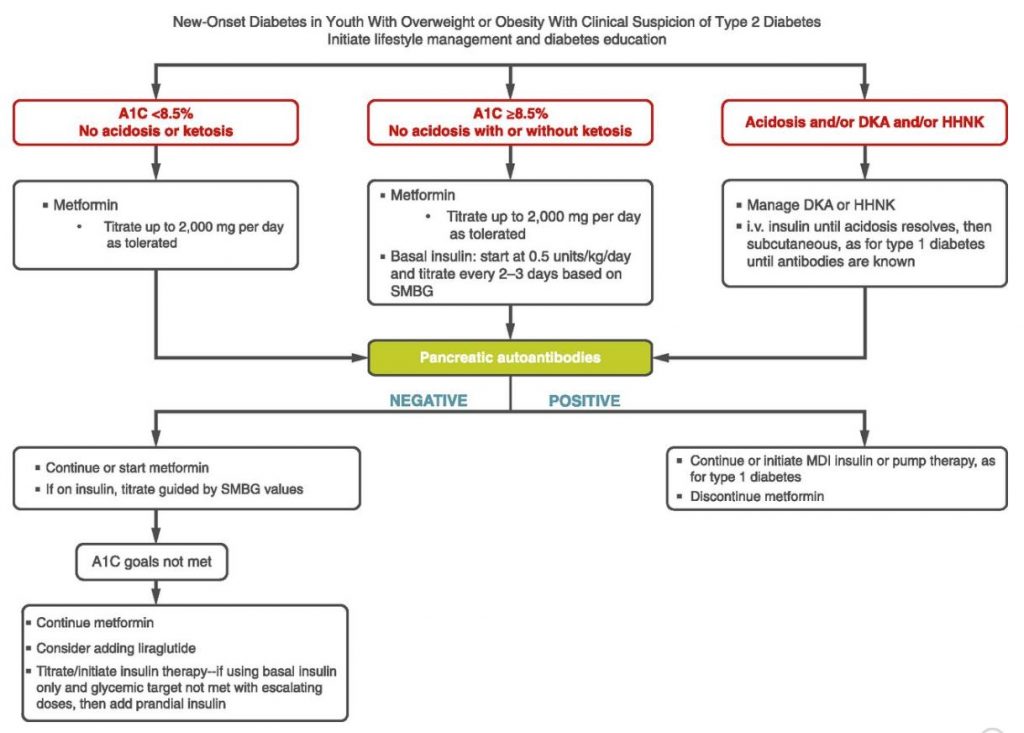
For our July 6th Question of the Week, 80% of respondents chose the best answer. We want to “take a closer look” at this question and determine strategies to choose the best response.
Before we start though, if you don’t want any spoilers and haven’t tried the question yet, you can answer below: Answer Question
Question 1: JR is a 15-year-old with newly diagnosed type 2 diabetes, with an A1c of 8.3% and elevated lipids.
In addition to nutrition and activity coaching, which of the following medications are FDA approved for pediatrics?
Answer Choices:
- Glipizide and Sitagliptin
- SGLT-2 Inhibitors and GLP-1 Receptor Agonists
- Glimepiride and Empagliflozin
- Liraglutide and Metformin

As shown above, the most common choice was option 4, the second most common answer was option 2, then option 1, and finally option 3.
Getting to the Best Answer
If you are thinking about taking the certification exam, the content of this practice test question will set you up for success. The exam will present questions that require test takers to be familiar with knowledge of special populations like pediatrics, older folks and management of diabetes during pregnancy. According to the ADA Standards of Care, Section 13 of Children and Adolescents, here is the best answer.
Answers & Rationale
Answer 1 is incorrect, 6.96% chose this answer, “Glipizide and Sitagliptin.” Although commonly used in adults, sulfonylureas, including glipizide and DPP-IV’s including Sitagliptin, are not FDA approved for people under the age of 18.
Answer 2 is incorrect, 8.06% of you chose this answer, “SGLT-2 Inhibitors and GLP-1 Receptor Agonists.” Although commonly used in adults, SGLT-2s are not FDA approved for people under the age of 18. There is one GLP-1 Receptor Agonists, liraglutide (Victoza) approved for use in pediatrics over the age of 10. However, none of the other GLP-1 RAs are FDA approved for pediatrics.
Answer 3 is incorrect, 4.95% of you chose this answer, “Glimepiride and Empagliflozin.” Although commonly used in adults, sulfonylureas, including glimepiride and SGLT-2 Inhibitors, including empagliflozin, are not FDA approved for people under the age of 18.
Answer 4 is Correct, 80.04% of you chose this answer “Liraglutide and Metformin.” Great Job! For children under the age of 18, the only FDA approved pharmacologic interventions include metformin, liraglutide and insulin.
We hope you appreciate this week’s rationale! Thank you so much for taking the time to answer our Question of the Week and participate in this fun learning activity!

Want to learn more about this topic? Enroll in our
Level 2 | From Tots to Teens Diabetes Standards | 1.5 CEs

This course includes updated goals and guidelines for children living with type 1 or type 2 diabetes. This course discusses the special issues diabetes educators need to be aware of when working with children with diabetes and their families.
We discuss the clinical presentation of diabetes, goals of care, and normal growth and development through the early years through adolescence. Strategies to prevent acute and long term complications are included with an emphasis on positive coping for family and child with diabetes.
Topics include:
- Discuss the goals of care for Type 1 and Type 2 Kids with Diabetes
- State Strategies to prevent acute and chronic complications
- Discuss the importance of positive psychosocial adjustment and resources
See Full Calendar for upcoming webinars and Virtual Courses.
Can’t make it live? All paid registrants are guaranteed access to the video presentation, handouts and podcasts.
Sign up for Diabetes Blog Bytes – we post one daily Blog Byte from Monday to Friday. And of course, Tuesday is our Question of the Week. It’s Informative and FREE! Sign up below!
[yikes-mailchimp form=”1″]Accreditation: Diabetes Education Services is an approved provider by the California Board of Registered Nursing, Provider 12640, and Commission on Dietetic Registration (CDR), Provider DI002. Since these programs are approved by the CDR it satisfies the CE requirements for the CDCES regardless of your profession.*
The use of DES products does not guarantee the successful passage of the CDCES exam. CBDCE does not endorse any preparatory or review materials for the CDCES exam, except for those published by CBDCE.








